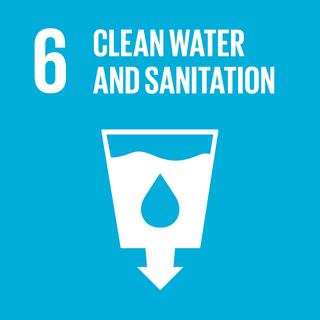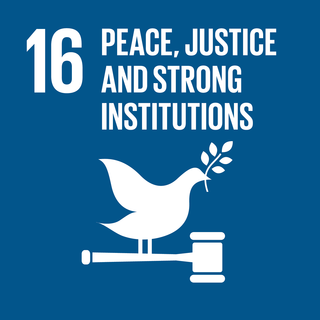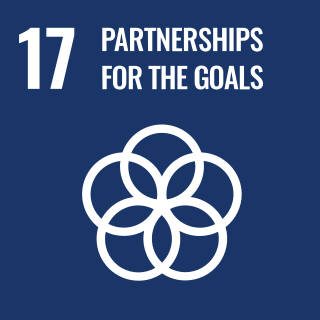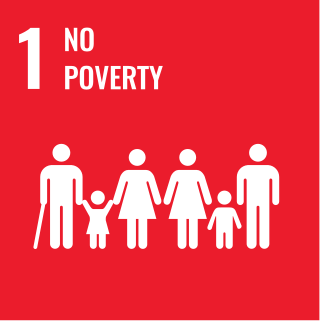International education refers to a dynamic concept that involves a journey or movement of people, minds, or ideas across political and cultural frontiers. It is facilitated by the globalization phenomenon, which increasingly erases the constraints of geography on economic, social and cultural arrangements. The concept involves a broad range of learning, covering, for instance, formal education and informal learning. It could also involve a reorientation of academic outlook such as the pursuit of "worldmindedness" as a goal so that a school or its academic focus is considered international. For example, the National Association of State Universities prescribes the adoption of "proper education" that reflects the full range of international, social, political, cultural, and economic dialogue. International educators are responsible for "designing, managing, and facilitating programs and activities that help participants to appropriately, effectively, and ethically engage in interactions with culturally diverse people and ideas."

The Decade of Education for Sustainable Development (DESD) 2005–2014 was an Education for Sustainable Development (ESD) initiative of the United Nations. The Decade was delivered by UNESCO as lead agency, and gave rise to Regional Centres of Expertise (RCE) networks, and the GUPES universities' partnership. The launch of the United Nations Decade of Education for Sustainable Development started a global movement to reorient education to address the challenges of sustainable development. It was the first UN Decade to establish a global monitoring and evaluation process and expert group. Building on the achievement of the Decade, stated in the Aichi-Nagoya Declaration on ESD, UNESCO endorsed the Global Action Programme on ESD (GAP) in the 37th session of its General Conference. Acknowledged by UN general assembly Resolution A/RES/69/211 and launched at the UNESCO World Conference on ESD in 2014, the GAP aims to scale-up actions and good practices. UNESCO has a major role, along with its partners, in bringing about key achievements to ensure the principles of ESD are promoted through formal, non-formal and informal education.
UNESCO leads the United Nations Literacy Decade (UNLD) under the slogan of "Literacy as Freedom". Launched at UN Headquarters in 2003, the Decade aims to increase literacy levels and empower all people everywhere. In declaring this Decade, the international community recognised that the promotion of literacy is in the interest of all, as part of efforts towards peace, respect and exchange in a globalizing world.

The Gender Parity Index (GPI) is a socioeconomic index usually designed to measure the relative access to education of males and females. This index is released by UNESCO. In its simplest form, it is calculated as the quotient of the number of females by the number of males enrolled in a given stage of education. A GPI equal to one signifies equality between males and females. A GPI less than one is an indication that gender parity favors males while a GPI greater than one indicates gender parity that favors females. The closer a GPI is to one, the closer a country is to achieving equality of access between males and females. It is used by international organizations, particularly in measuring the progress of developing countries. The Institute for Statistics of UNESCO also uses a more general definition of GPI: for any development indicator one can define the GPI relative to this indicator by dividing its value for females by its value for males. For example, some UNESCO documents consider gender parity in literacy.
The UNESCO World Water Assessment Programme was founded in 2000 in response to a call from the UN Commission on Sustainable Development (CSD) to produce a UN system-wide periodic global overview of the status, use and management of freshwater resources. To meet this challenge, WWAP coordinates the work of 31 UN-Water members and international partners, under the umbrella mechanism of UN-Water, in the production of the World Water Development Report (WWDR). The WWDR is the UN flagship report on water issues; it is a comprehensive review, released every year with a different focus on different strategic water issues, that gives an overall picture of the state, use and management of the world’s freshwater resources and aims to provide decision-makers with tools to formulate and implement sustainable water policies.
Kevin Charles Watkins is at the London School of Economics as a visiting professor of development practice at the Firoz Lalji Institute for Africa. Recently the chief executive of Save the Children UK, from October 2016 until his resignation in July 2021. He was previously at the Overseas Development Institute as executive director in June 2013. His research focuses on education, globalization and human development. He is a former nonresident senior fellow at the Center for Universal Education at the Brookings Institution. He was previously the director and lead author of the UNESCO's Education for All Global Monitoring Report.
The UNESCO Institute for Statistics (UIS) is the statistical office of UNESCO and is the UN depository for cross-nationally comparable statistics on education, science and technology, culture, and communication.

The Sustainable Development Goals (SDGs) or Global Goals are a collection of 17 interlinked objectives designed to serve as a "shared blueprint for peace and prosperity for people and the planet now and into the future". The SDGs are: no poverty; zero hunger; good health and well-being; quality education; gender equality; clean water and sanitation; affordable and clean energy; decent work and economic growth; industry, innovation and infrastructure; reduced inequalities; sustainable cities and communities; responsible consumption and production; climate action; life below water; life on land; peace, justice, and strong institutions; and partnerships for the goals. The SDGs emphasize the interconnected environmental, social and economic aspects of sustainable development by putting sustainability at their center.
Education 2010 Agenda refers to the global commitment of the Education for All movement to ensure access to basic education for all. It is an essential part of the 2030 Agenda for Sustainable Development. The roadmap to achieve the Agenda is the Education 2030 Incheon Declaration and Framework for Action, which outlines how countries, working with UNESCO and global partners, can translate commitments into action.

Sustainable Development Goal 6 is about "clean water and sanitation for all". It is one of 17 Sustainable Development Goals established by the United Nations General Assembly in 2015, the official wording is: "Ensure availability and sustainable management of water and sanitation for all." The goal has eight targets to be achieved by 2030. Progress toward the targets will be measured by using eleven indicators.

Sustainable Development Goal 16 is about "peace, justice and strong institutions." One of the 17 Sustainable Development Goals established by the United Nations in 2015, the official wording is: "Promote peaceful and inclusive societies for sustainable development, provide access to justice for all and build effective, accountable and inclusive institutions at all levels". The Goal has 12 targets to be achieved by 2030. Progress towards targets will be measured by 23 indicators.

Reshaping Cultural Policies is a report series published by UNESCO which monitors the implementation of the UNESCO Convention on the Protection and Promotion of the Diversity of Cultural Expressions (2005). The 2005 UNESCO Convention encourages its 146 parties to introduce policies for culture within a global context and commitment to protect and promote the diversity of cultural expressions. The second and most recent report (2018) subtitled “Advancing Creativity for Development” follows the first report (2015) with the subtitle “A Decade Promoting the Diversity of Cultural Expressions for Development”.

Sustainable Development Goal 17 is about "partnerships for the goals." One of the 17 Sustainable Development Goals established by the United Nations in 2015, the official wording is: "Strengthen the means of implementation and revitalize the global partnership for sustainable development". The Goal has 17 targets to be achieved by 2030, broken down into five categories: finance, technology, capacity building, trade and systemic issues. Progress towards targets will be measured by 25 indicators.

Sustainable Development Goal 12, titled "responsible consumption and production", is one of the 17 Sustainable Development Goals established by the United Nations in 2015. The official wording of SDG 12 is "Ensure sustainable consumption and production patterns". SDG 12 is meant to ensure good use of resources, improving energy efficiency, sustainable infrastructure, and providing access to basic services, green and decent jobs and ensuring a better quality of life for all. SDG 12 has 11 targets to be achieved by at least 2030 and progress toward the targets is measured using 13 indicators.

Sustainable Development Goal 11, titled "sustainable cities and communities", is one of 17 Sustainable Development Goals established by the United Nations General Assembly in 2015. The official mission of SDG 11 is to "Make cities inclusive, safe, resilient and sustainable". The 17 SDGs take into account that action in one area will affect outcomes in other areas as well, and that development must balance social, economic and environmental sustainability.

Sustainable Development Goal 10 is about reduced inequality and is one of the 17 Sustainable Development Goals established by the United Nations in 2015. The full title is: "Reduce inequality within and among countries".

Sustainable Development Goal 9 is about "industry, innovation and infrastructure" and is one of the 17 Sustainable Development Goals adopted by the United Nations General Assembly in 2015. SDG 9 aims to build resilient infrastructure, promote sustainable industrialization and foster innovation.

Sustainable Development Goal 4 is about quality education and is among the 17 Sustainable Development Goals established by the United Nations in September 2015. The full title of SDG 4 is "Ensure inclusive and equitable quality education and promote lifelong learning opportunities for all".

Sustainable Development Goal 1, one of the 17 Sustainable Development Goals established by the United Nations in 2015, calls for the end of poverty in all forms. The official wording is: "No Poverty". Member countries have pledged to "Leave No One Behind": underlying the goal is a "powerful commitment to leave no one behind and to reach those farthest behind first". SDG 1 aims to eradicate every form of extreme poverty including the lack of food, clean drinking water, and sanitation. Achieving this goal includes finding solutions to new threats caused by climate change and conflict. SDG 1 focuses not just on people living in poverty, but also on the services people rely on and social policy that either promotes or prevents poverty.

Sustainable Development Goals and Lebanon explains major contributions launched in Lebanon towards the advancement of the Sustainable Development Goals SDGs and the 2030 agenda. Multi-stakeholder forums were held by different UN agencies including the UN Global Compact Network in Lebanon during the late 2010s for the advancement of Global Goals and their Impact on Businesses in Lebanon. The latest two were held on October 18, 2018 and October 2019 under the title of connecting the global goals to Local Businesses.













